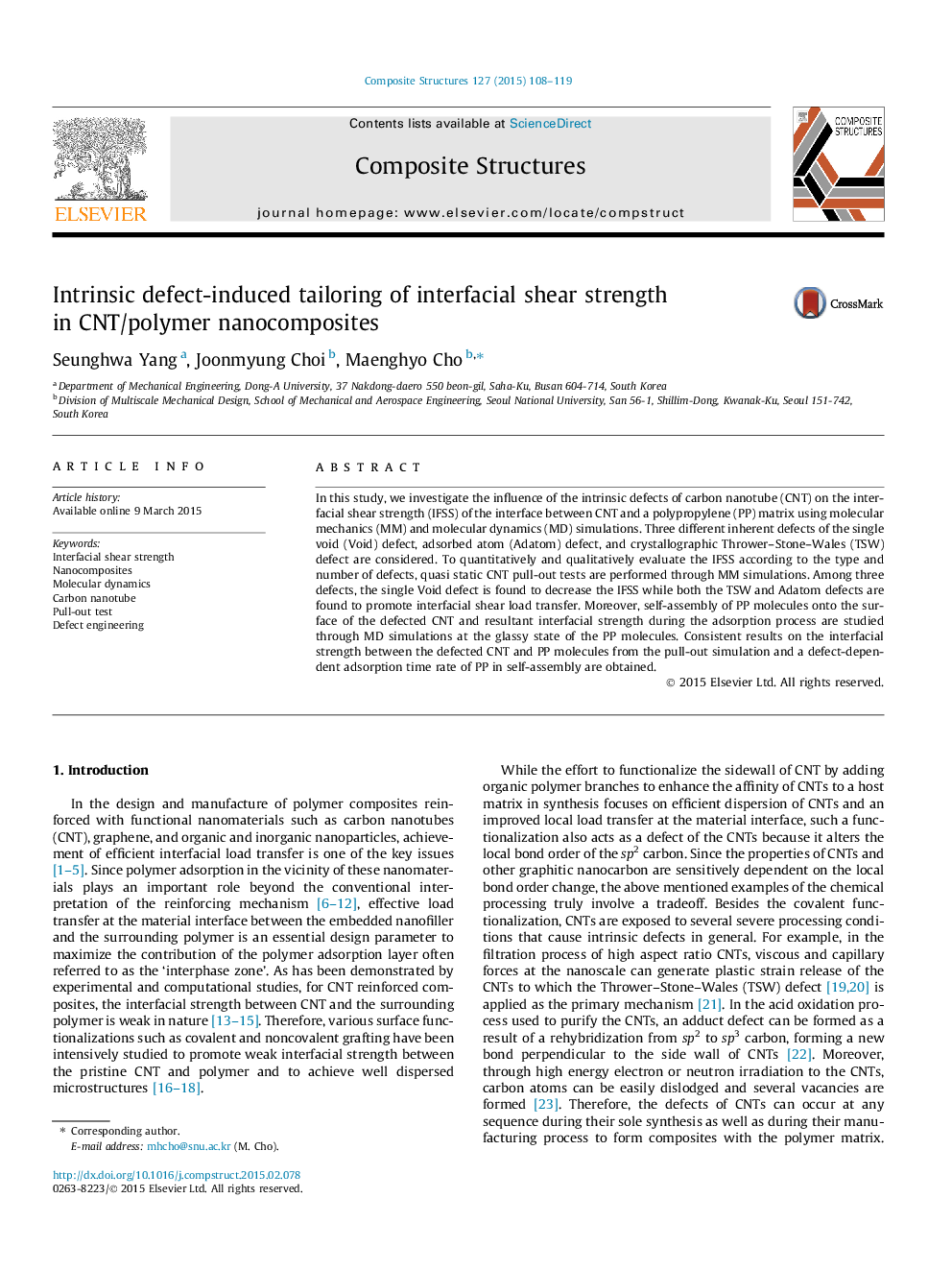| Article ID | Journal | Published Year | Pages | File Type |
|---|---|---|---|---|
| 251270 | Composite Structures | 2015 | 12 Pages |
In this study, we investigate the influence of the intrinsic defects of carbon nanotube (CNT) on the interfacial shear strength (IFSS) of the interface between CNT and a polypropylene (PP) matrix using molecular mechanics (MM) and molecular dynamics (MD) simulations. Three different inherent defects of the single void (Void) defect, adsorbed atom (Adatom) defect, and crystallographic Thrower–Stone–Wales (TSW) defect are considered. To quantitatively and qualitatively evaluate the IFSS according to the type and number of defects, quasi static CNT pull-out tests are performed through MM simulations. Among three defects, the single Void defect is found to decrease the IFSS while both the TSW and Adatom defects are found to promote interfacial shear load transfer. Moreover, self-assembly of PP molecules onto the surface of the defected CNT and resultant interfacial strength during the adsorption process are studied through MD simulations at the glassy state of the PP molecules. Consistent results on the interfacial strength between the defected CNT and PP molecules from the pull-out simulation and a defect-dependent adsorption time rate of PP in self-assembly are obtained.
